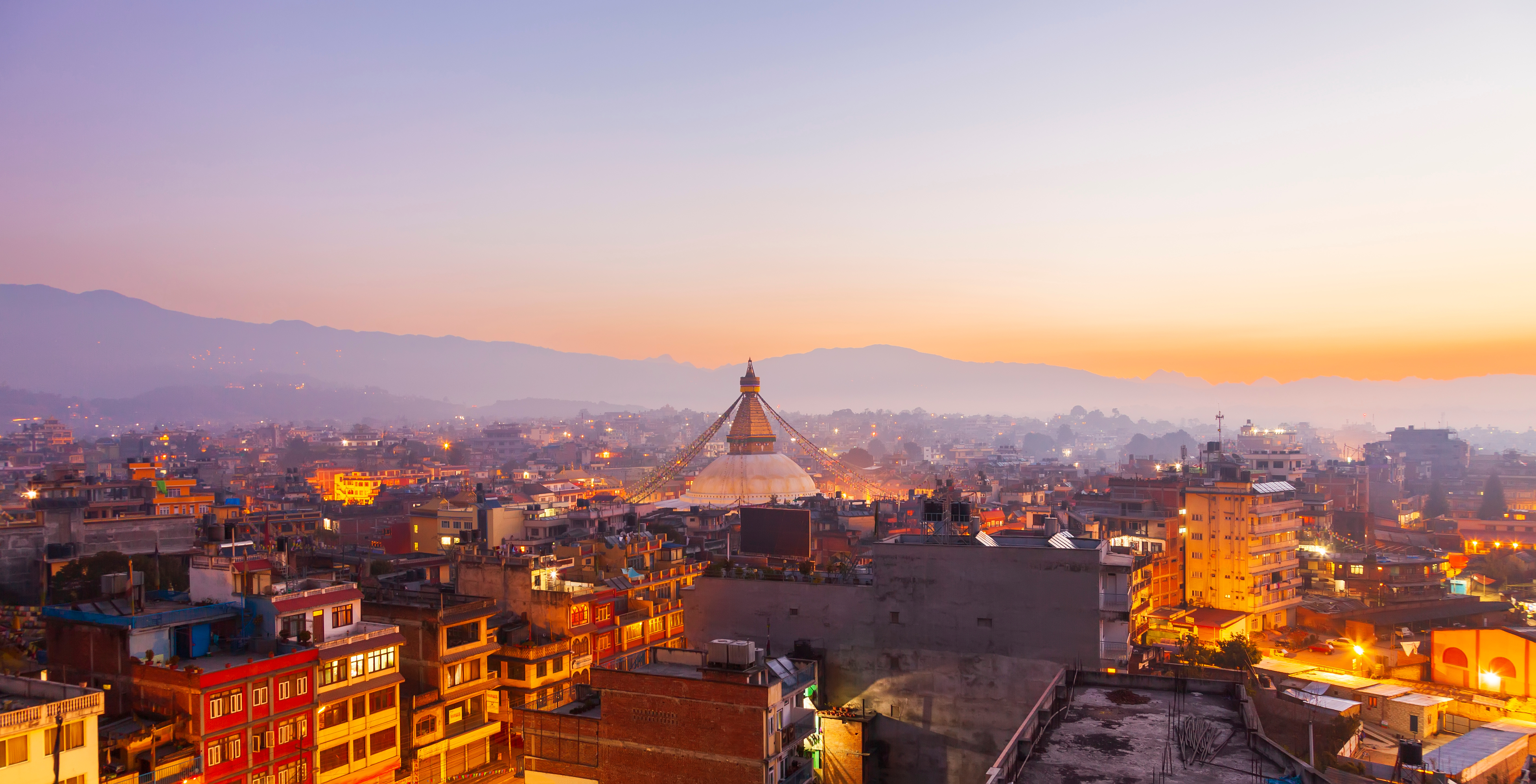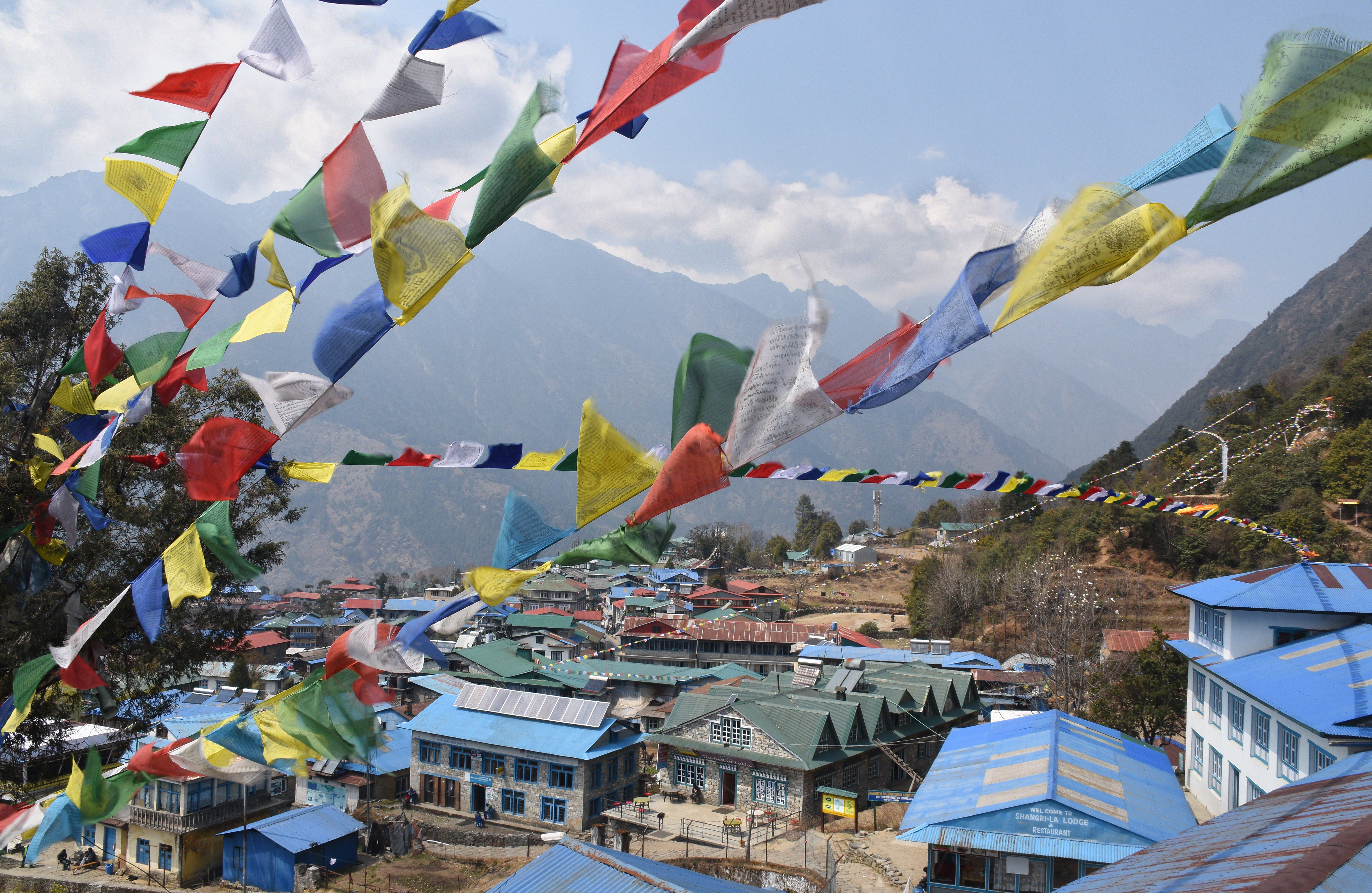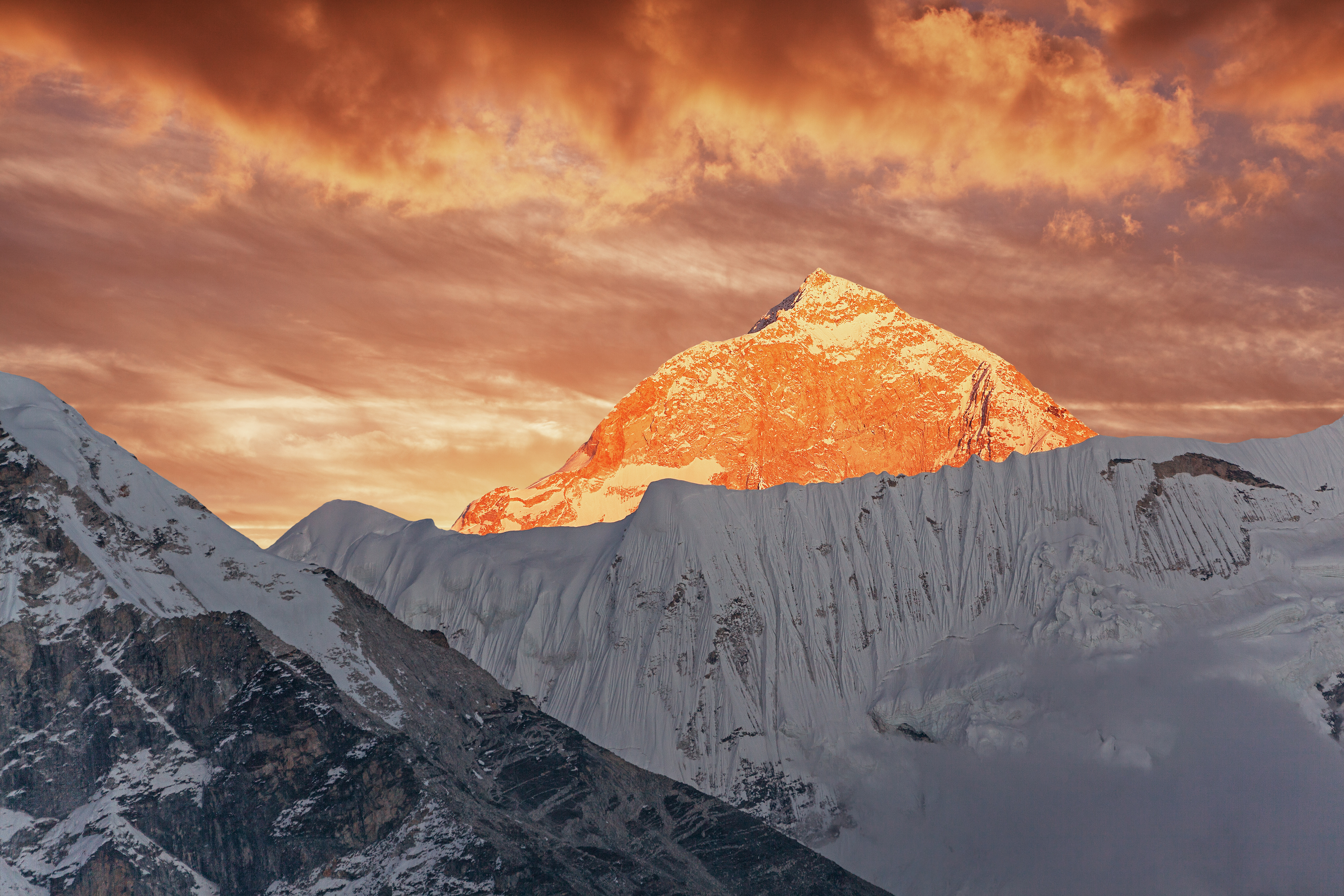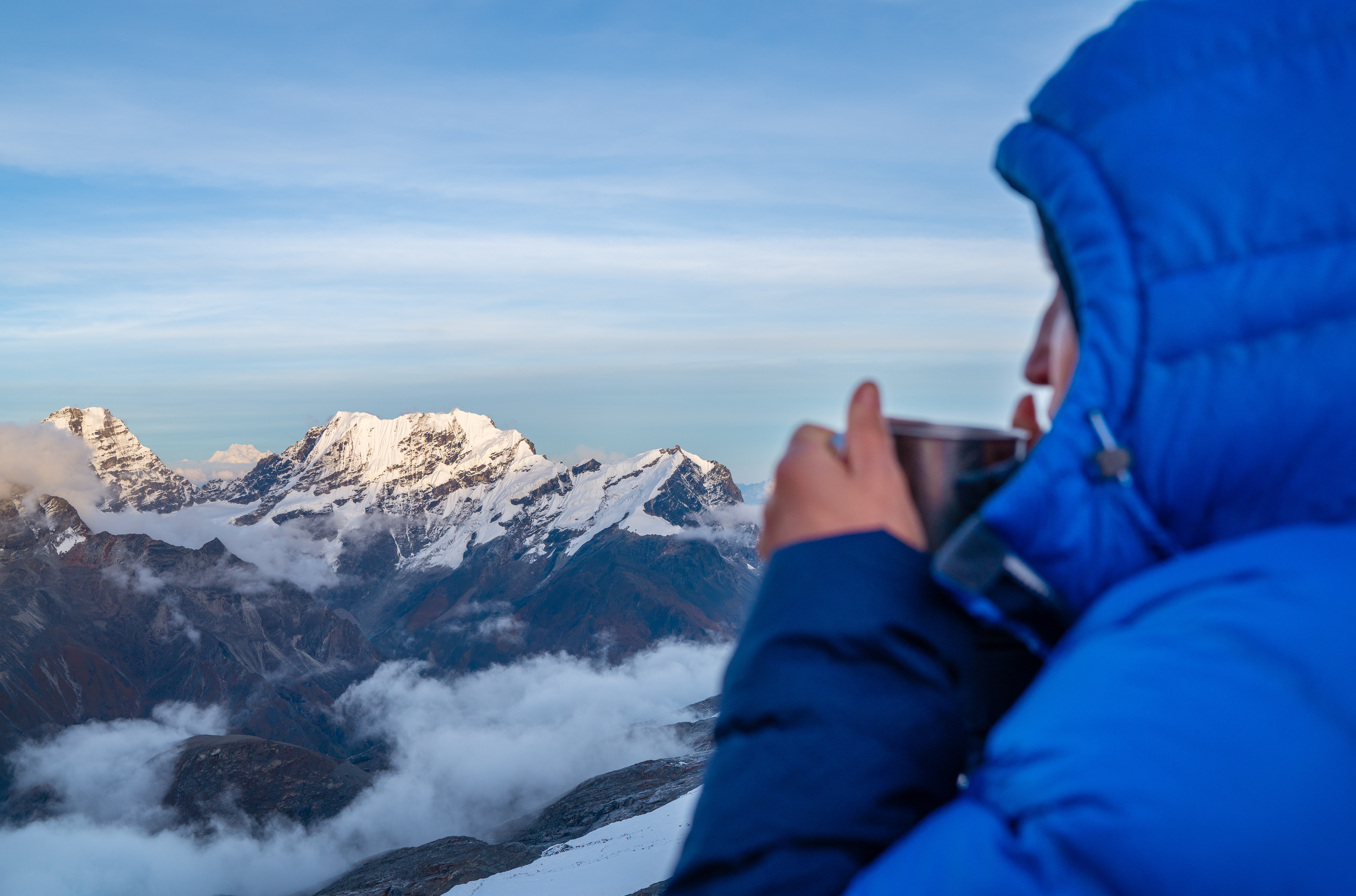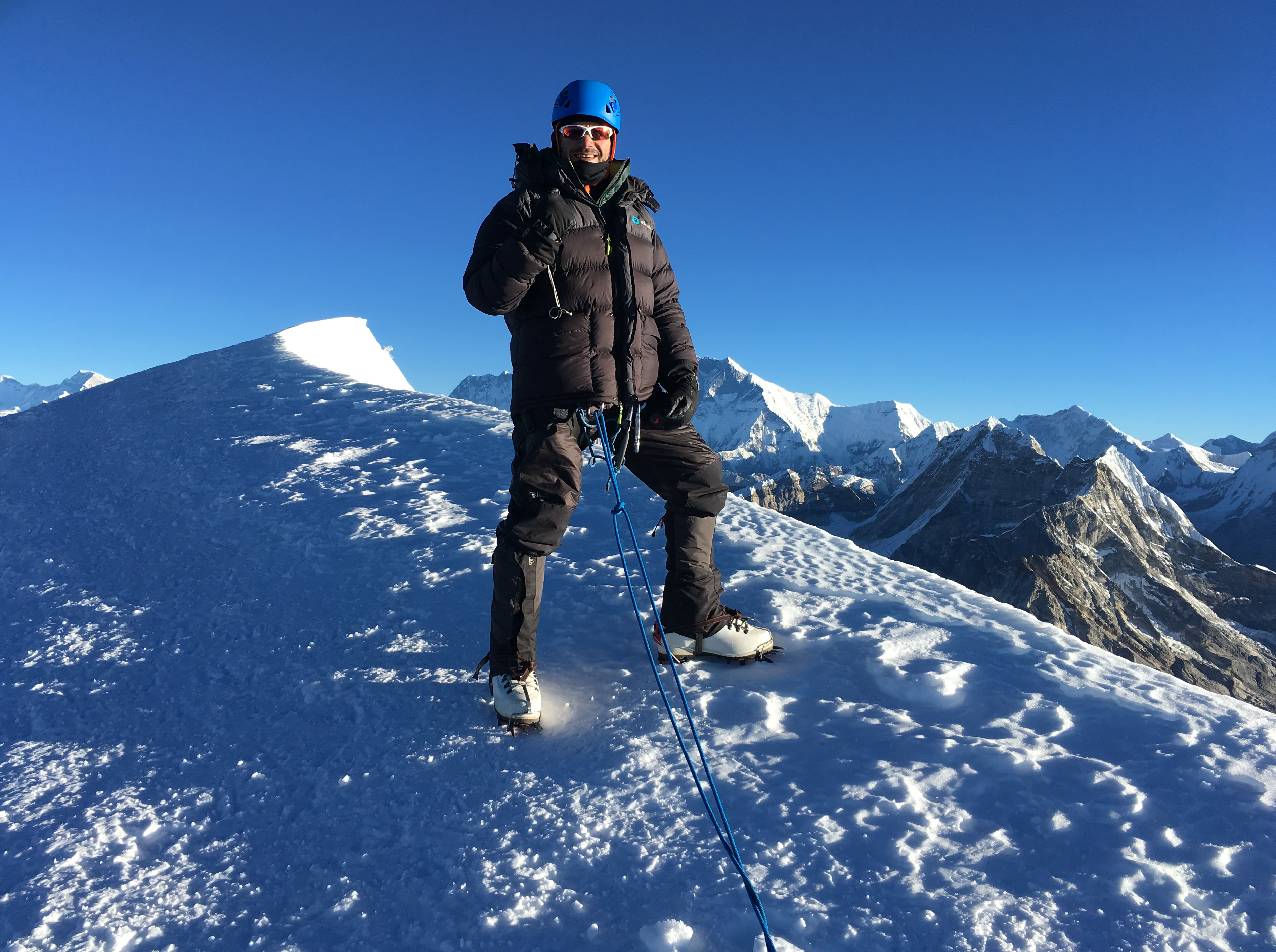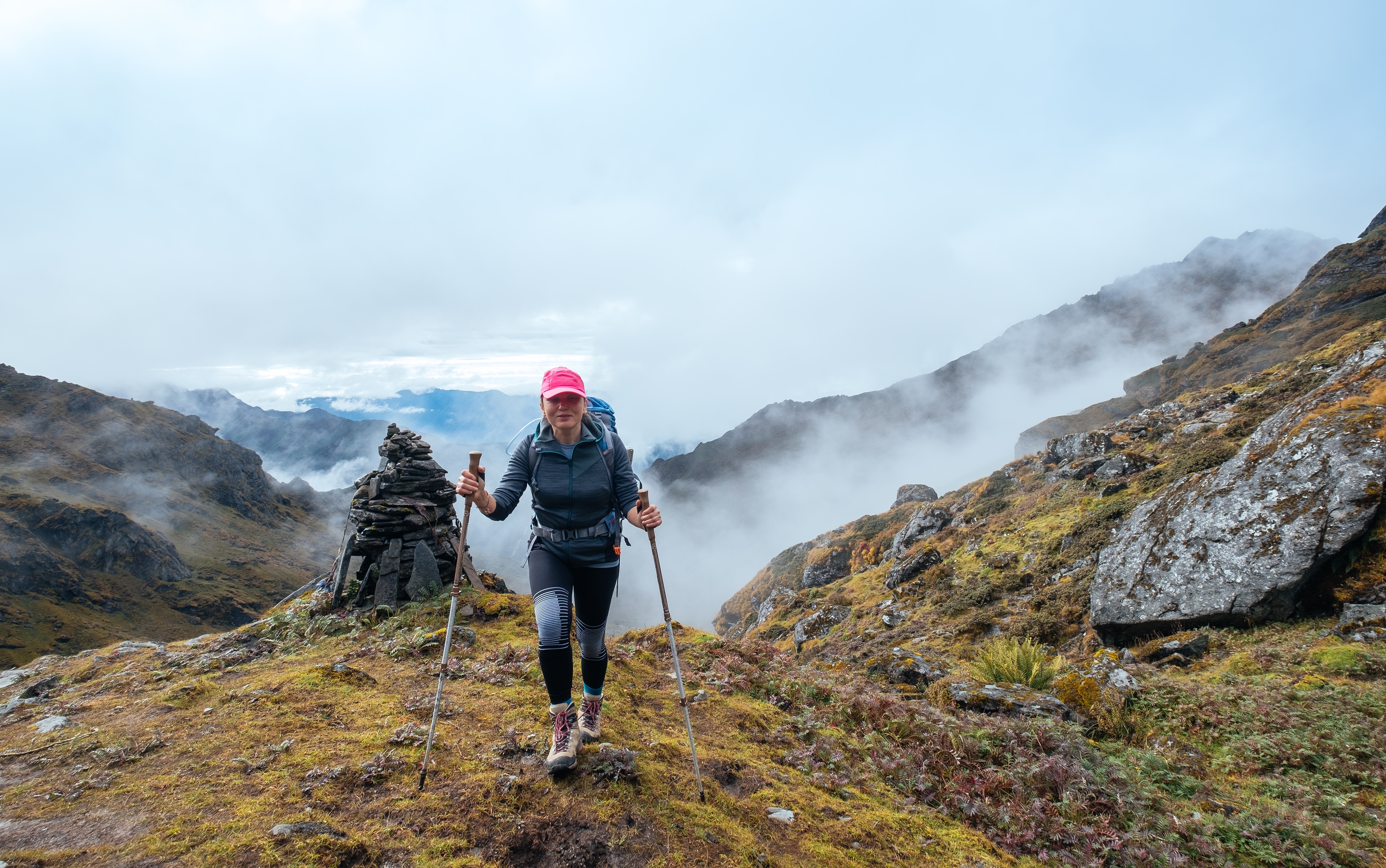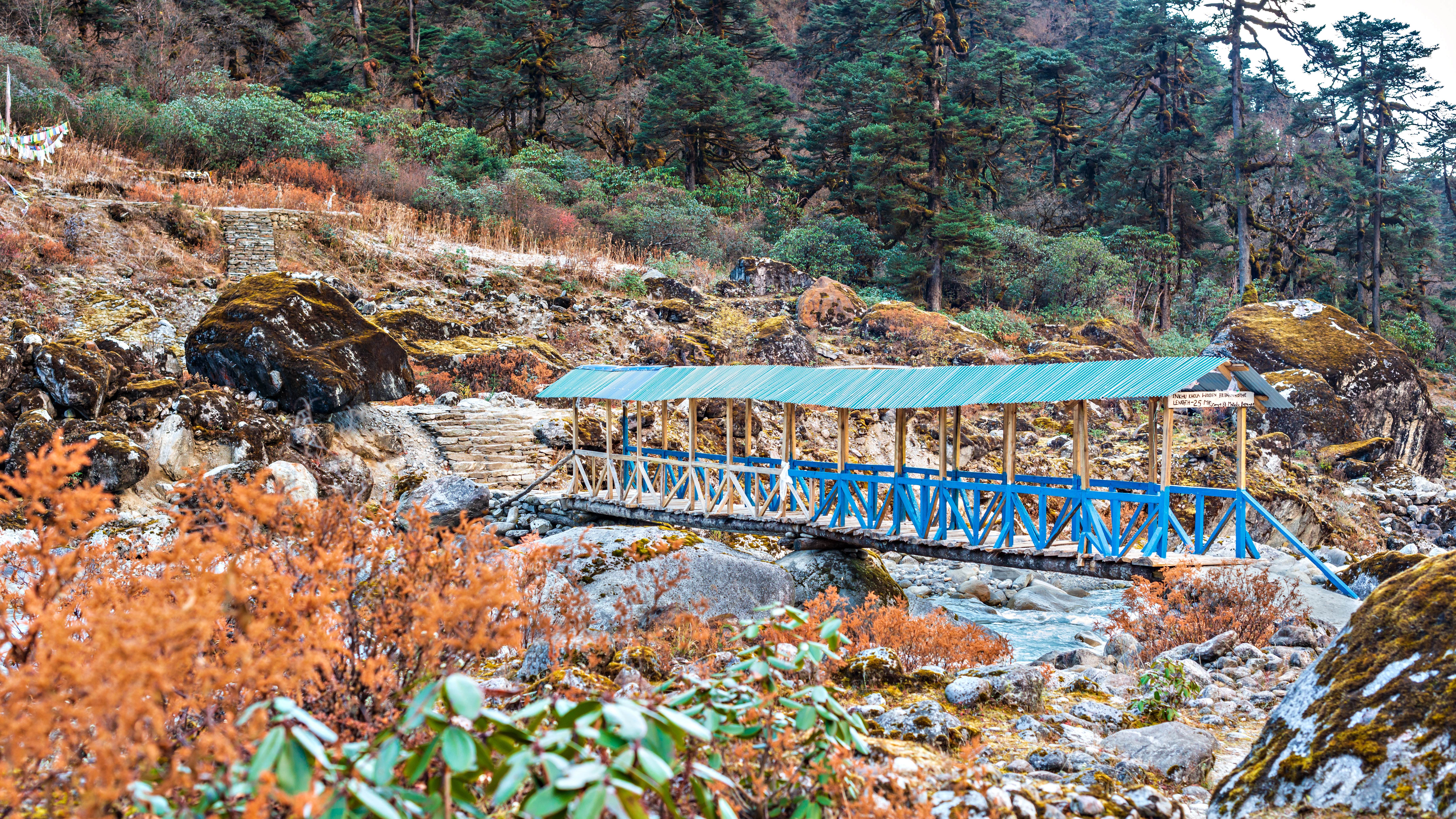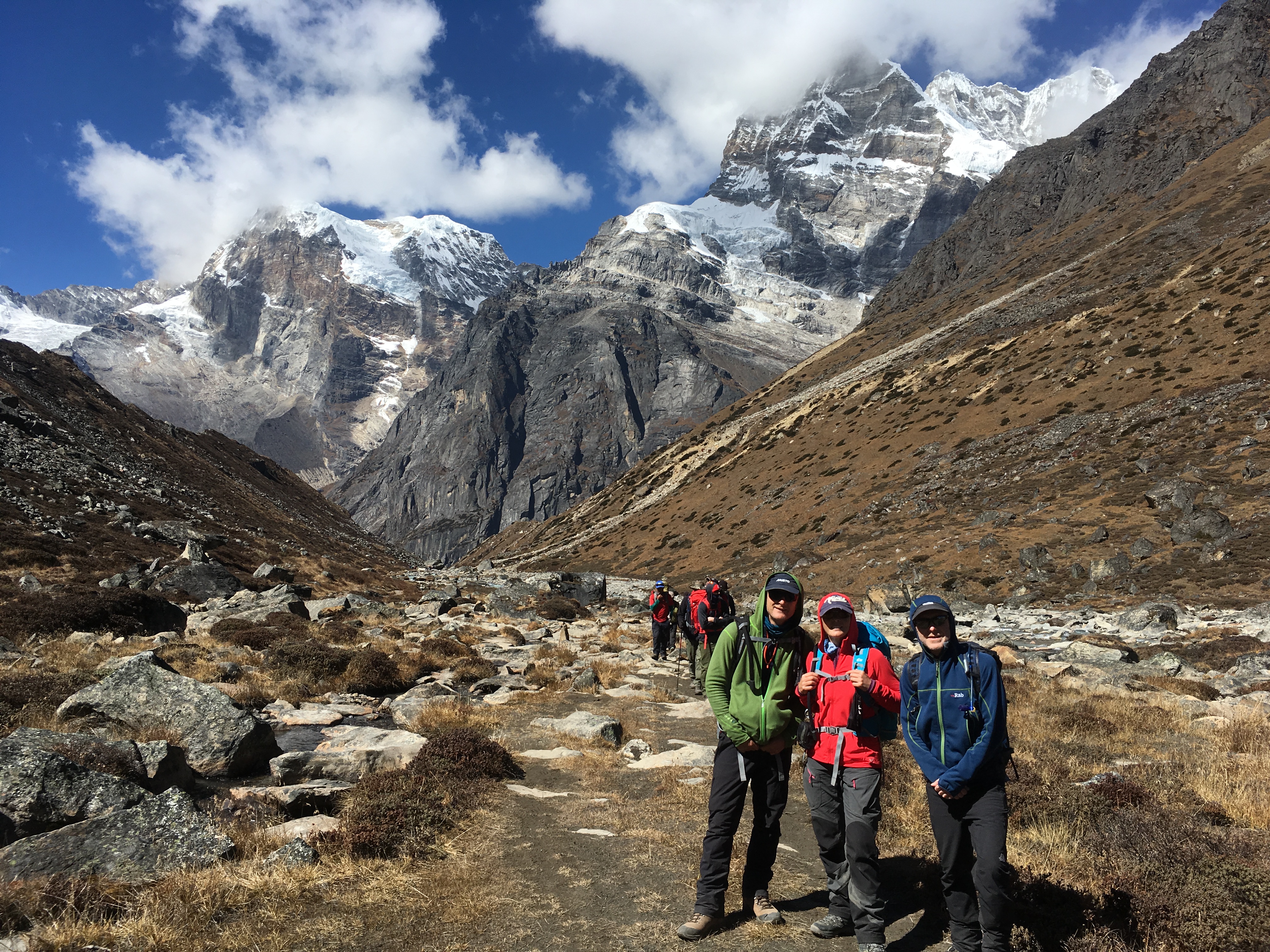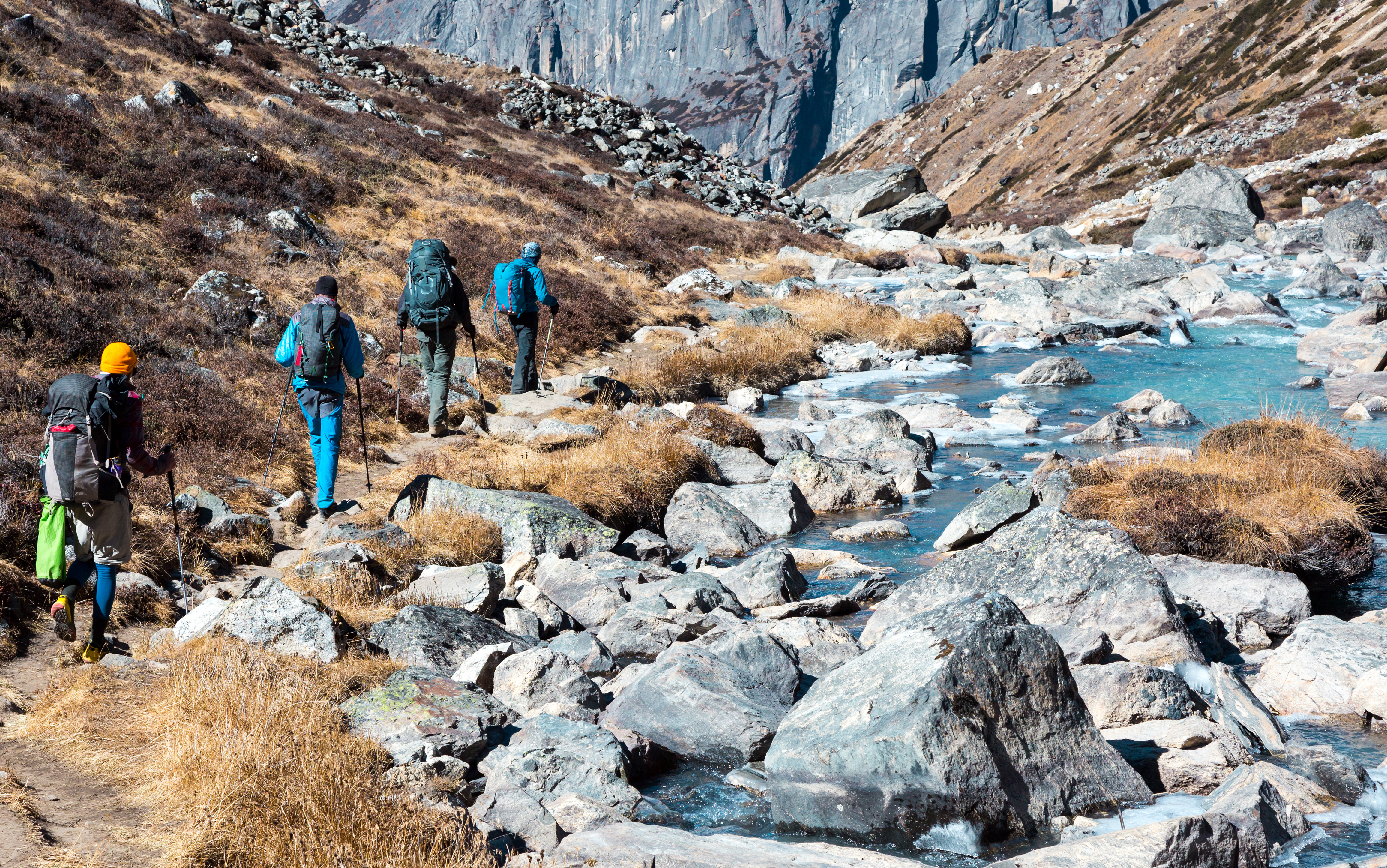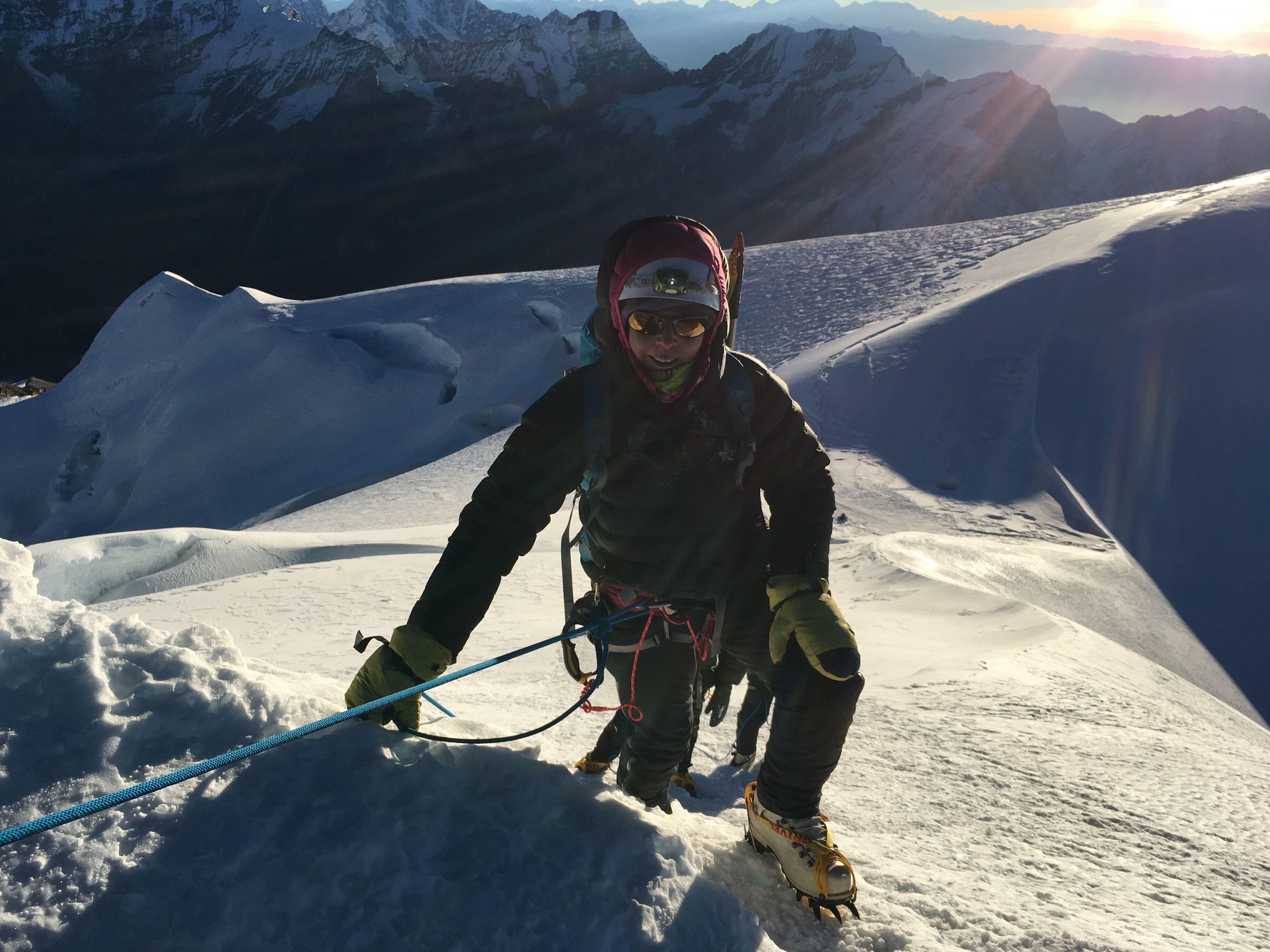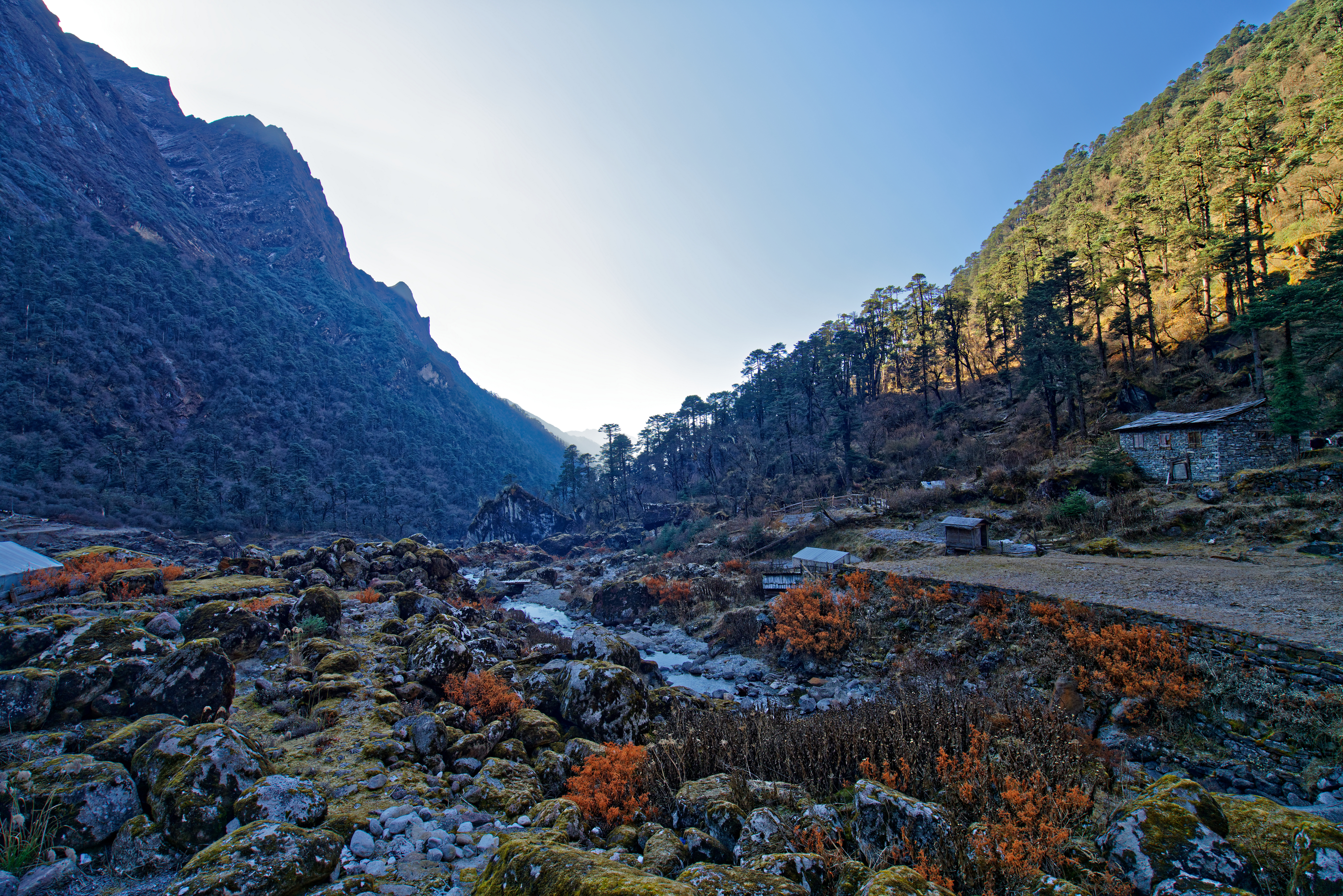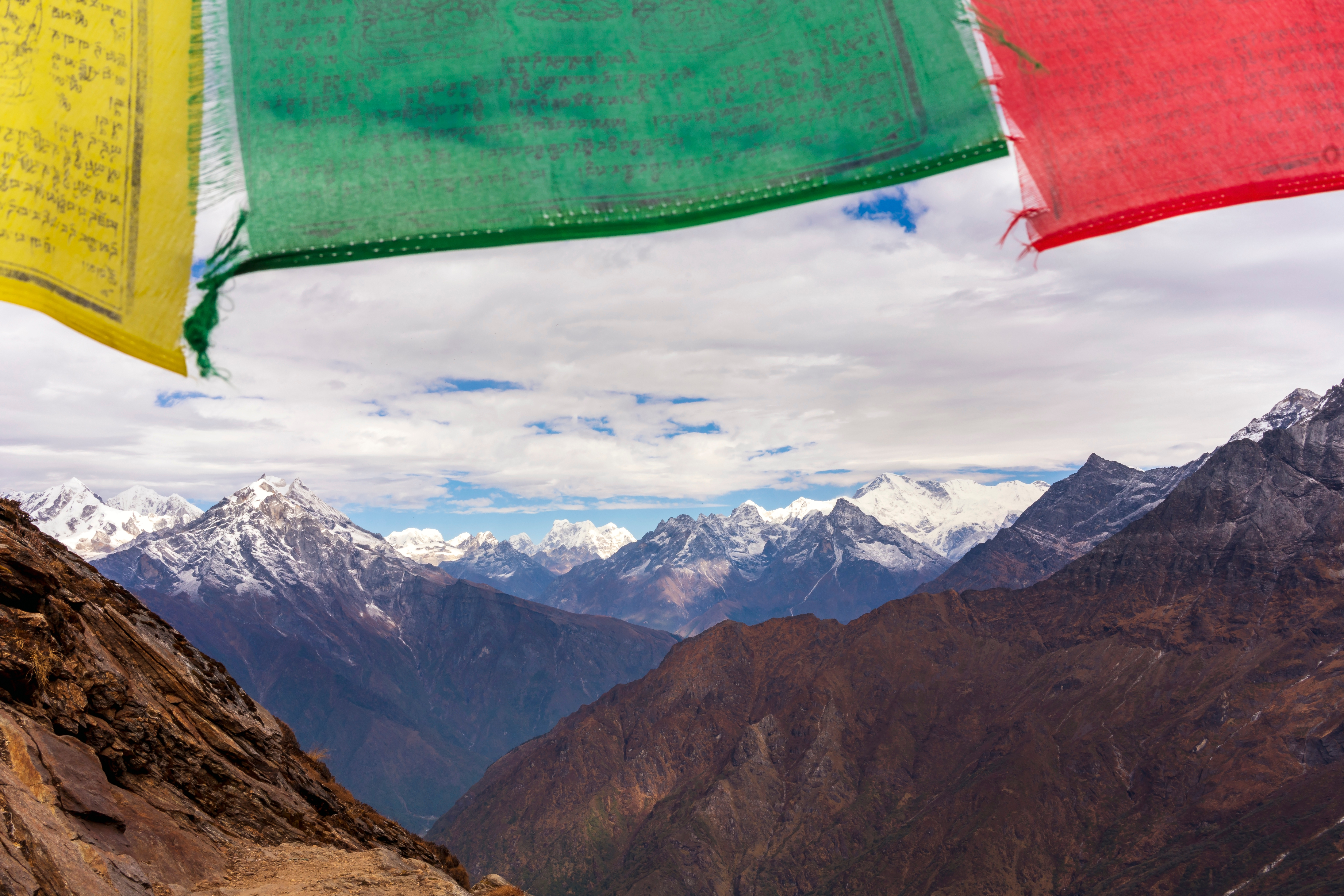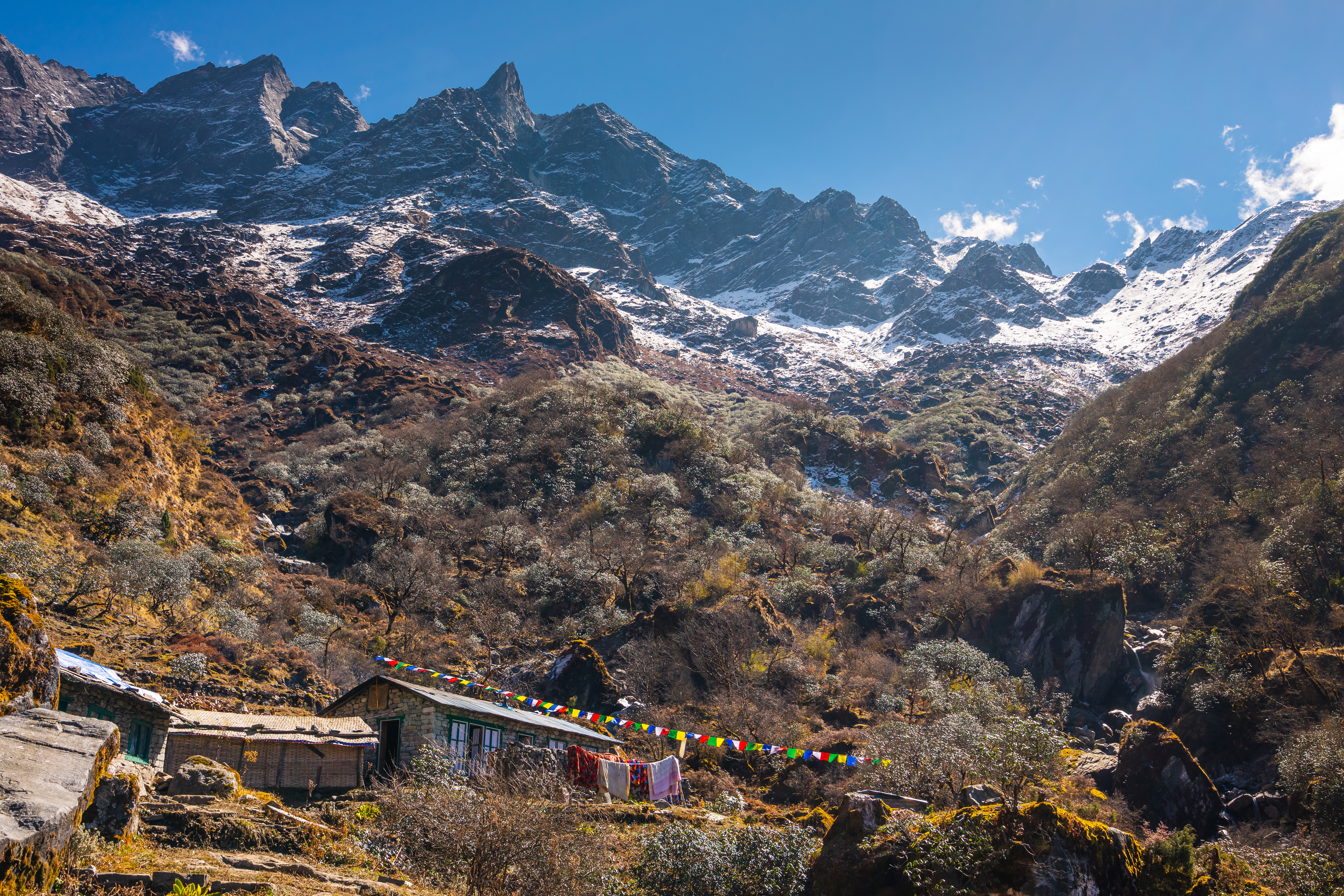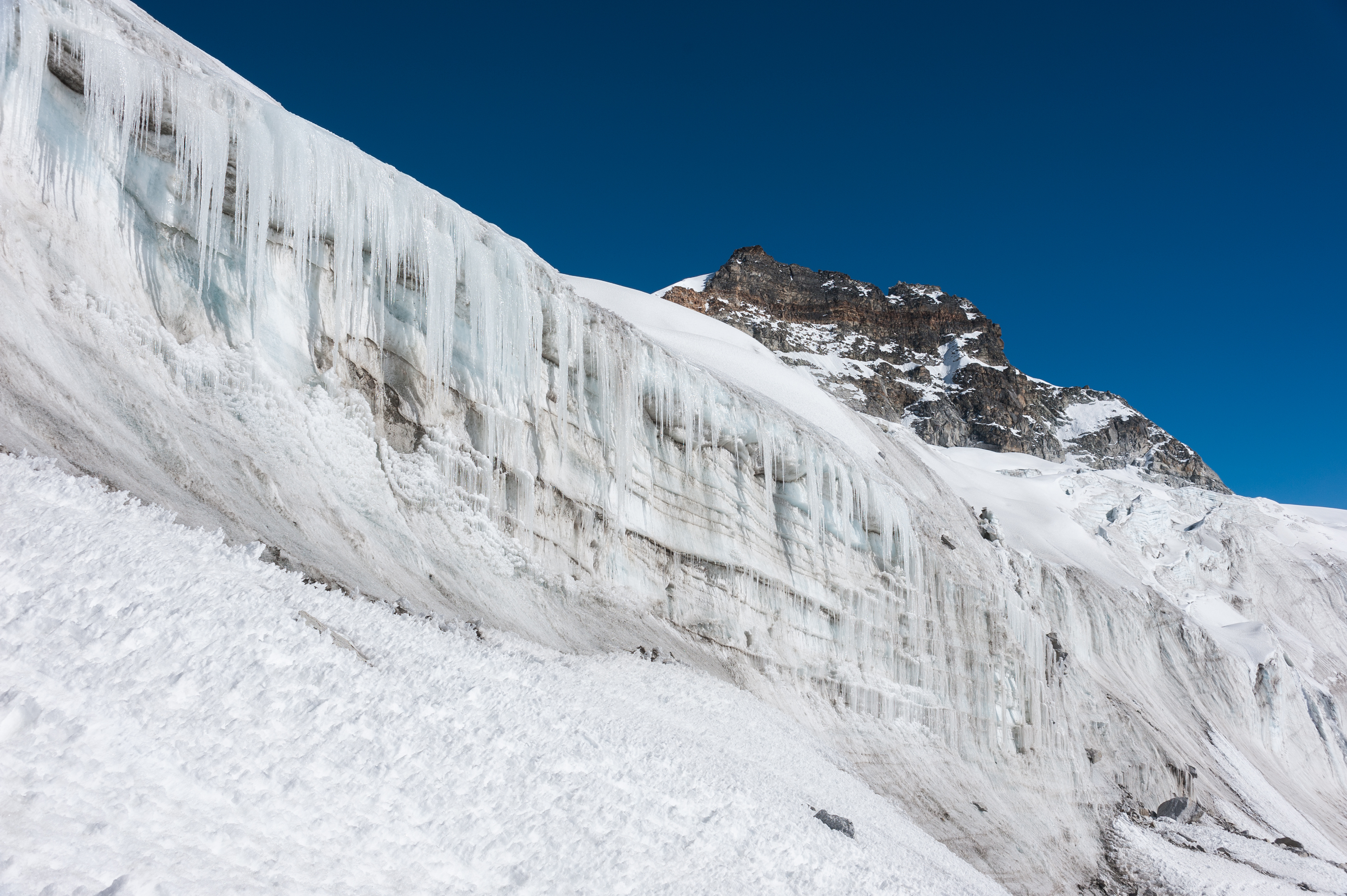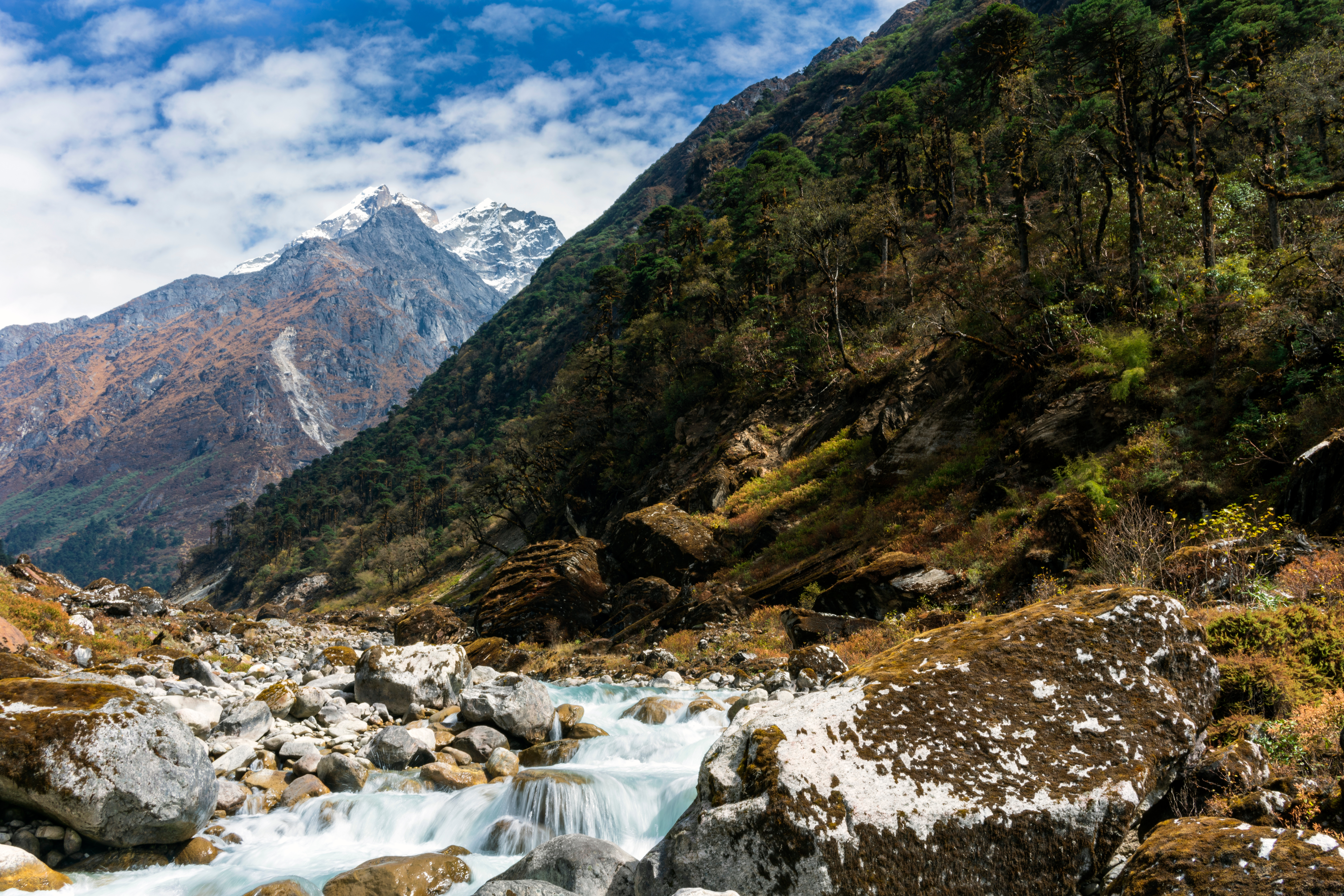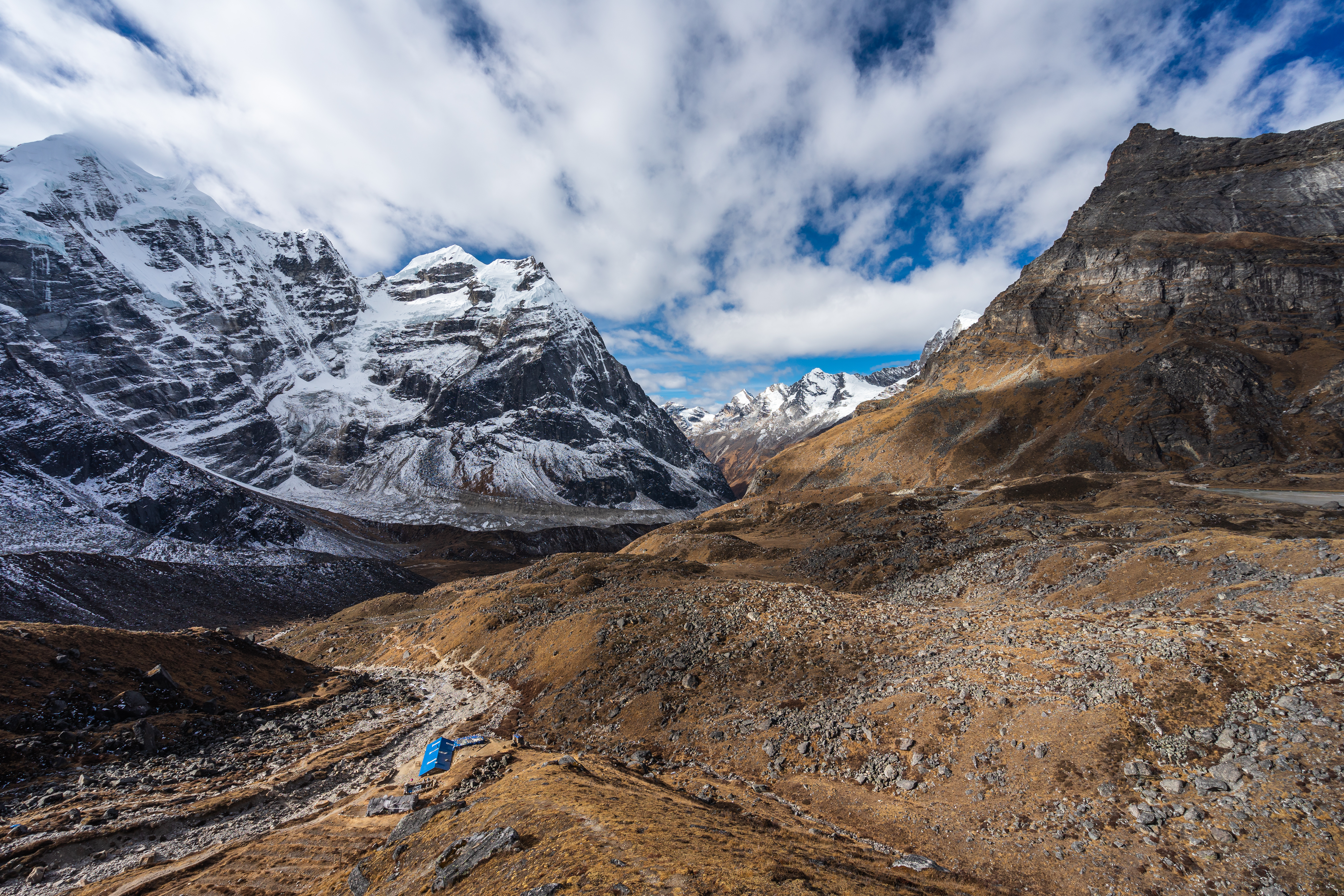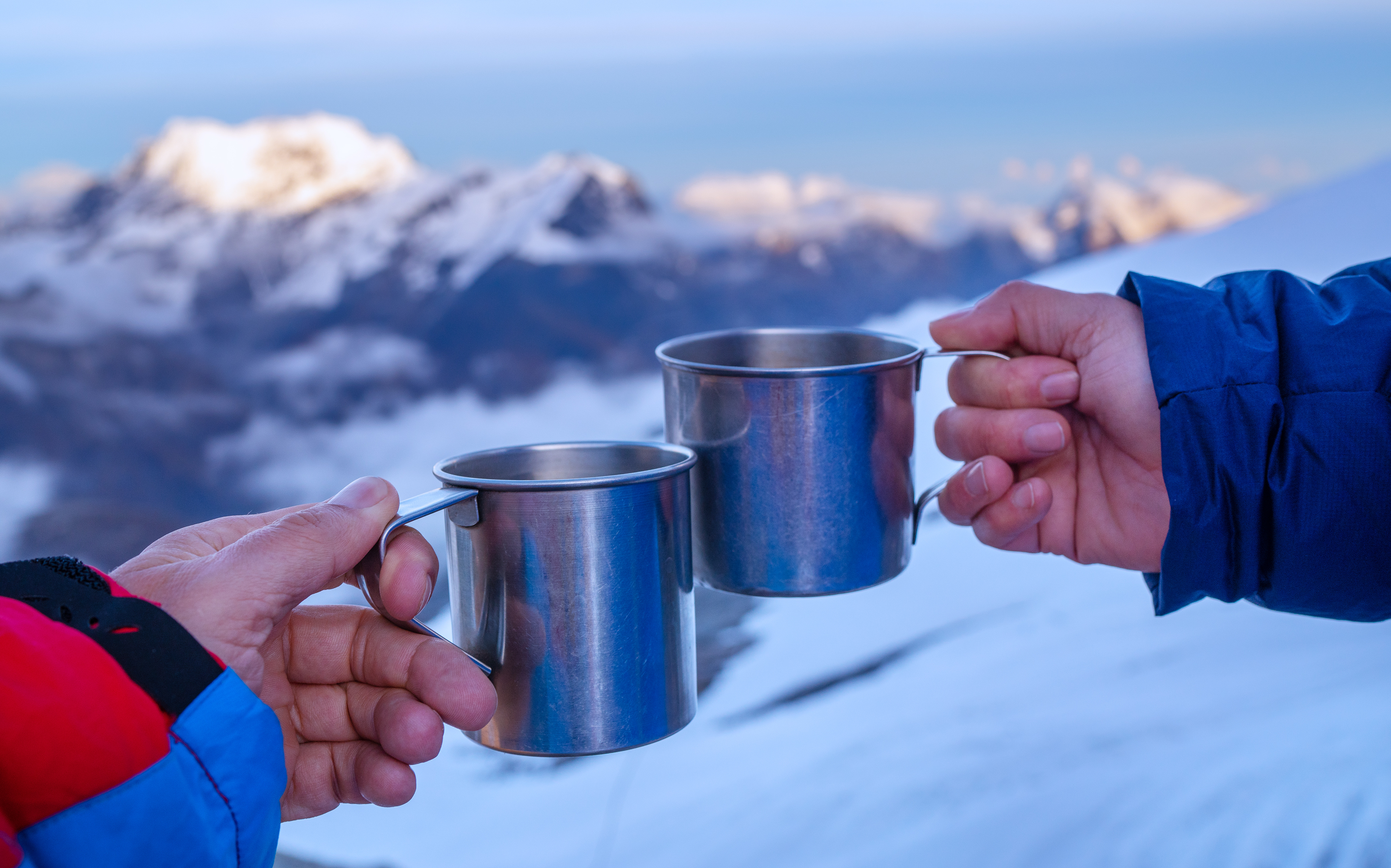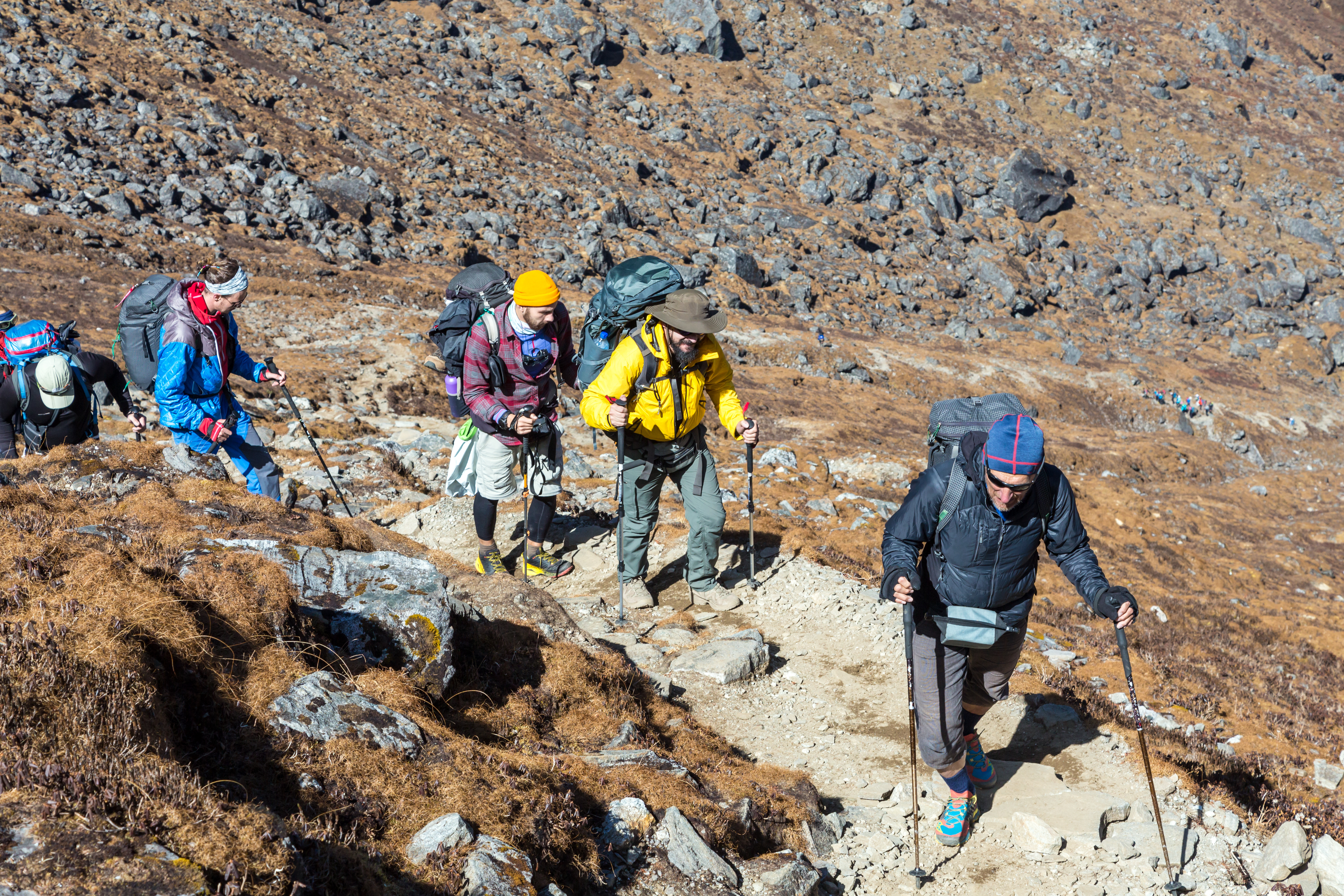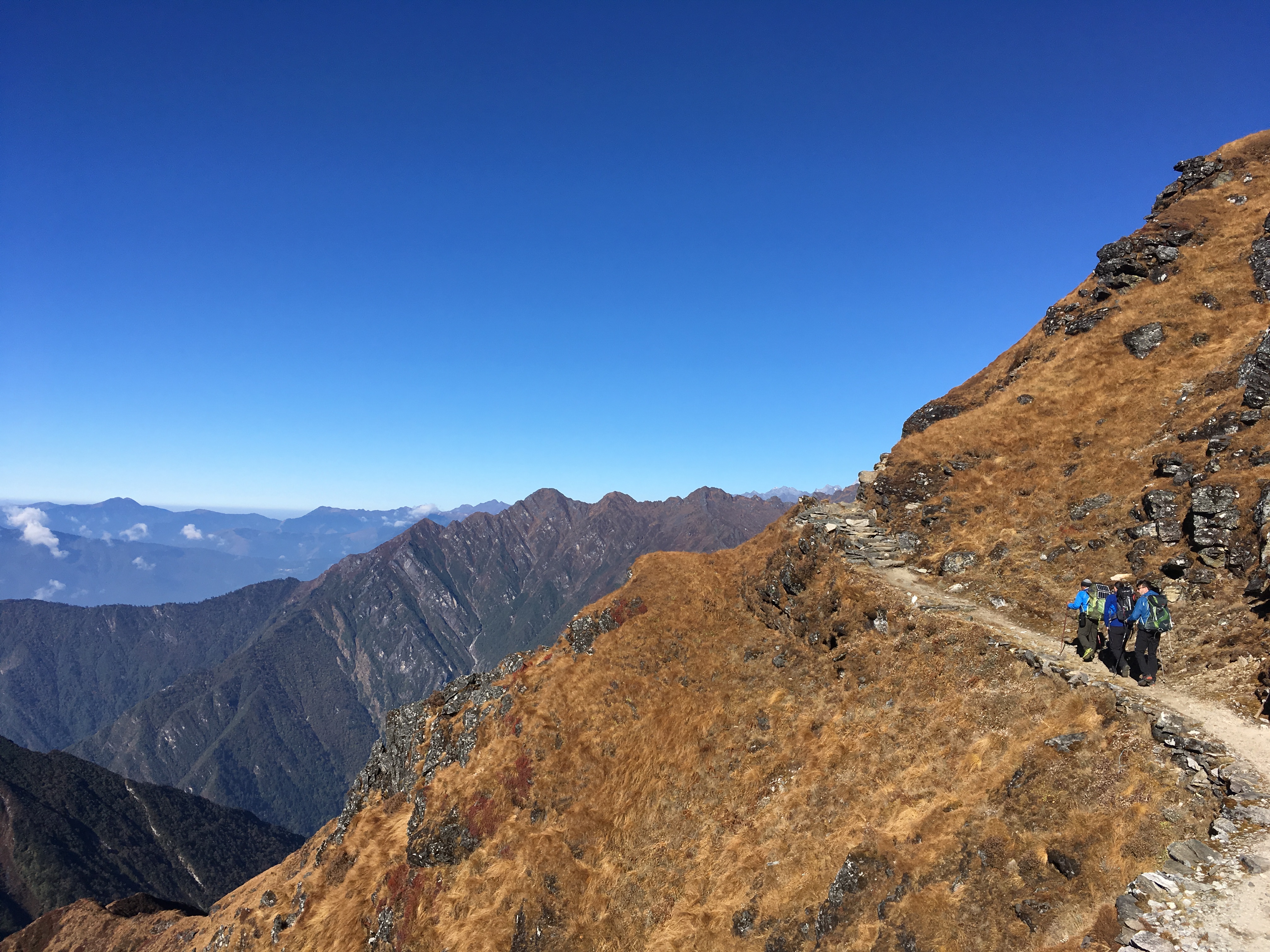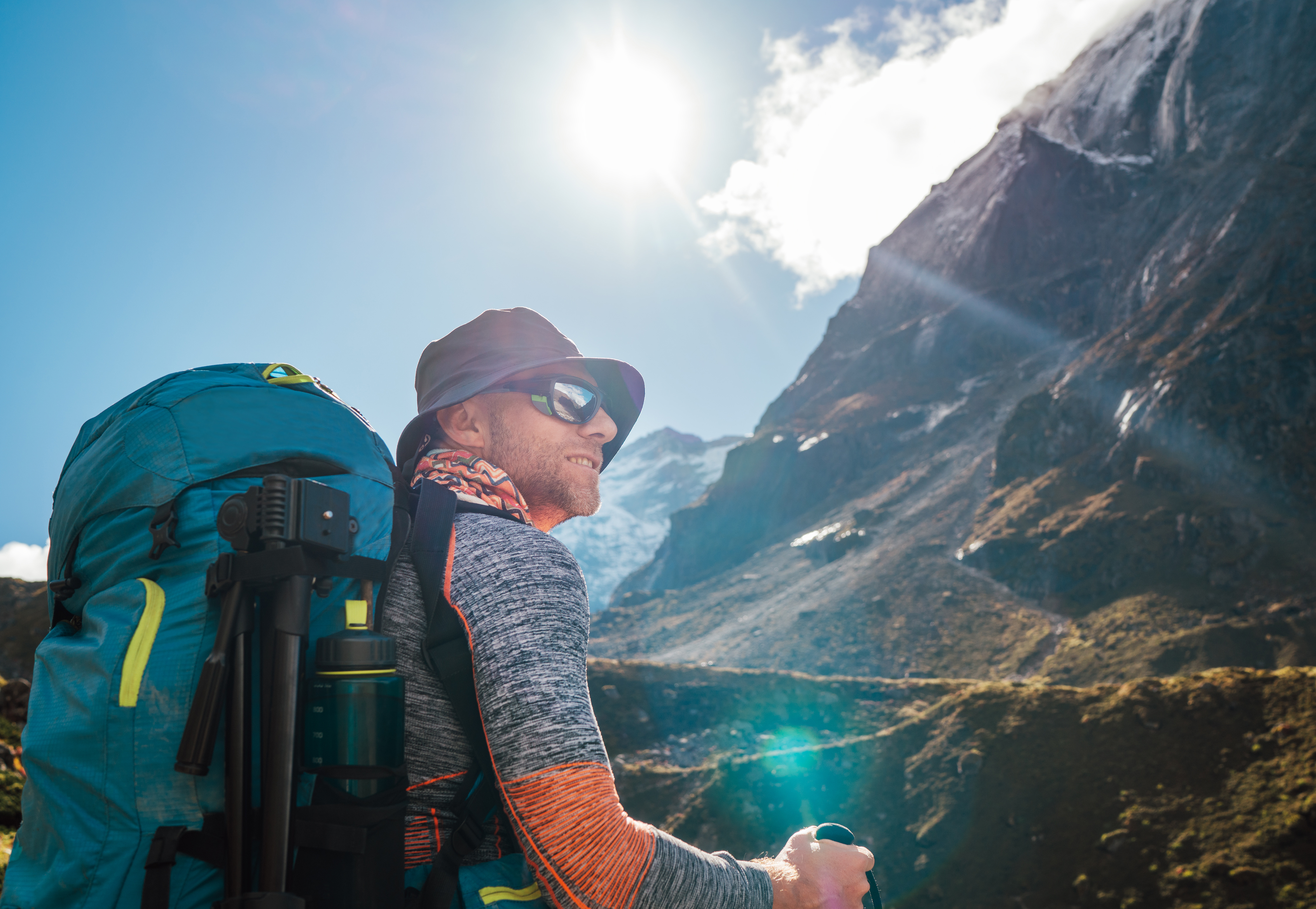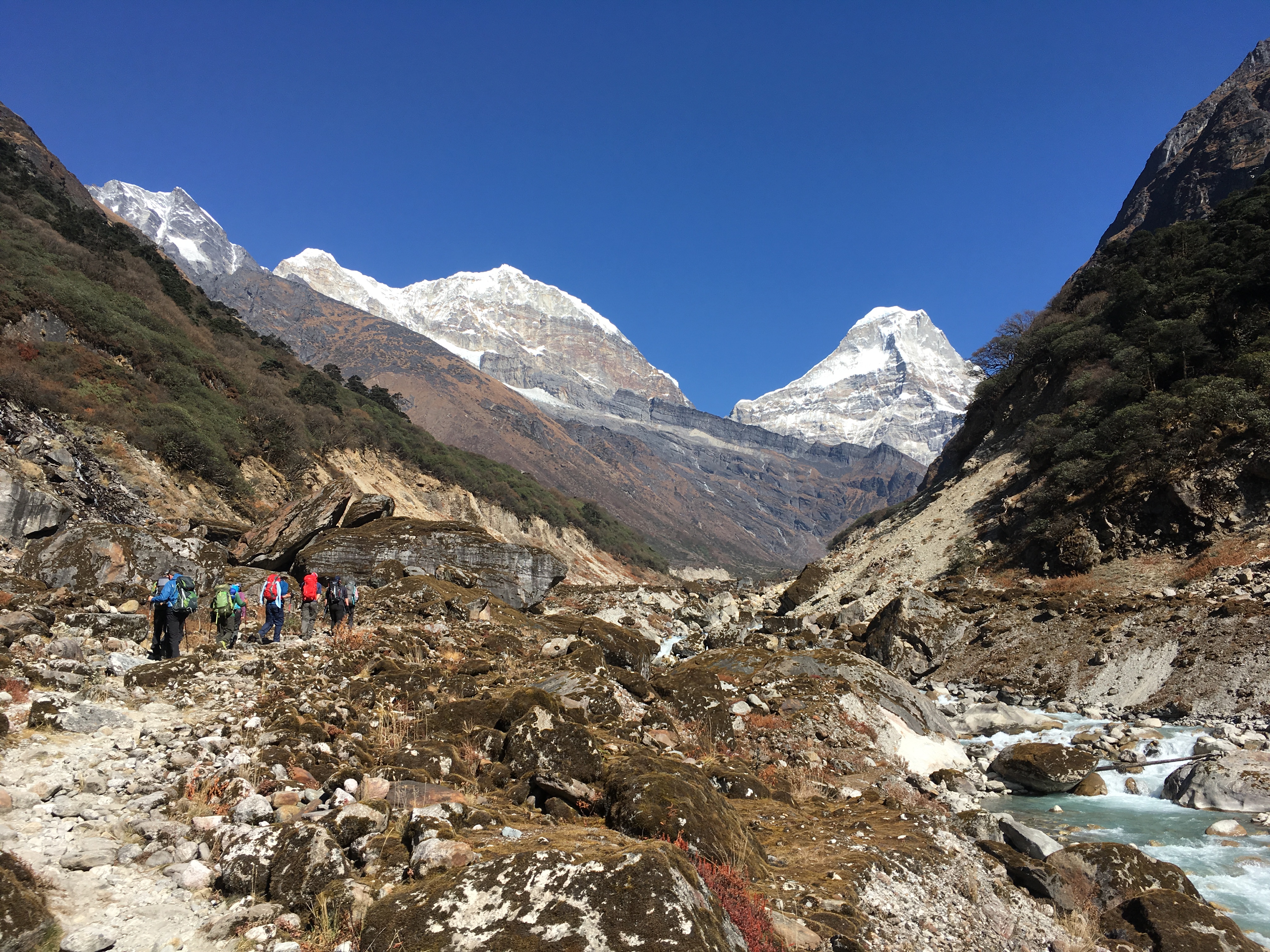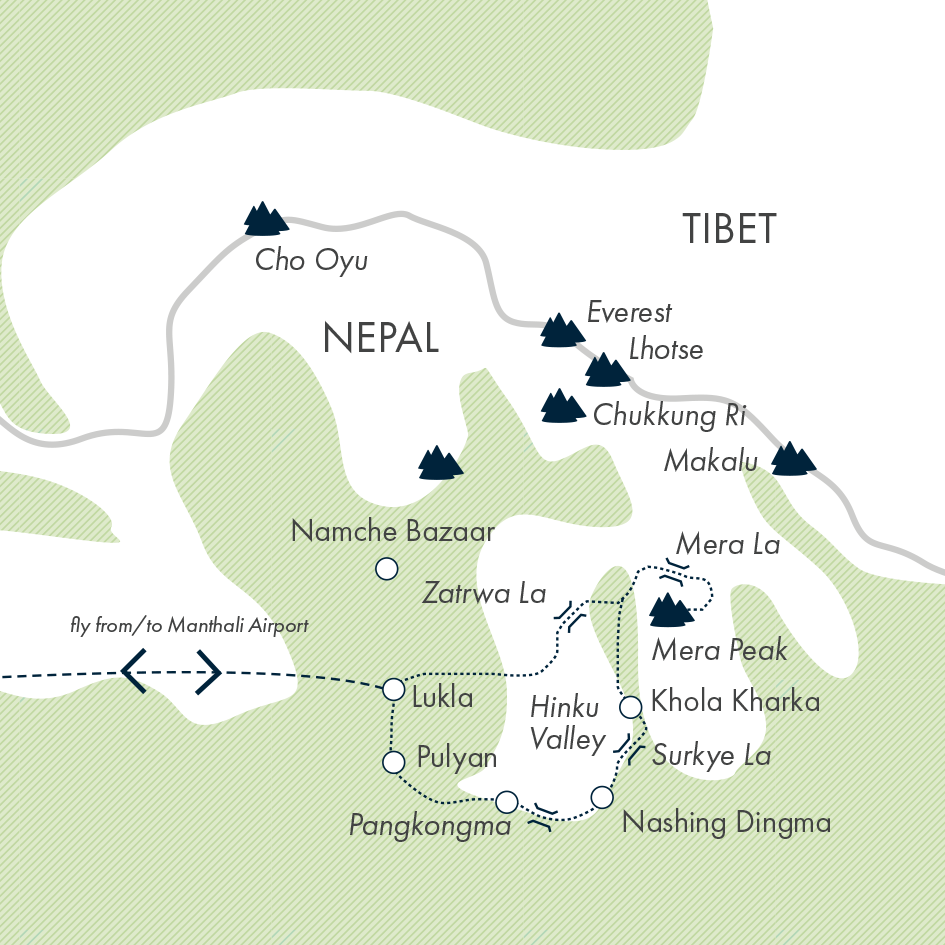Mera Peak Climb
Mera Peak Climb
$4720
Tour Overview
Test yourself against Mera Peak, the highest trekking peak in Nepal at 21,246ft (6,476m). Though tough, the ascent is a non-technical climb, which anyone with ice axe and crampon experience can attempt. With the help of our expert guides and porters, built-in acclimitisation and contingency days, and plenty of willpower, you can reach the summit of this beautiful Himalayan peak. The reward is a view over five of the six highest mountains in the world: Everest, Kanchenjunga, Lhotse, Makalu and Cho Oyu.
Why trek with Exodus?
One of the highest staff-to-trekker ratios on the trek with one staff member to every three trekkers
More than 30 years’ experience running treks in Nepal
Carefully planned ascent rates and itineraries with built-in acclimatisation and contingency days
We beat the Everest crowds by rising early, avoiding foot traffic on the trails and getting into the next teahouse early for hot showers
Established protocol for Lukla flight delays
Exodus annually commissions independent air-safety audits on domestic carriers in Nepal and only use those approved as part of the audit
Experienced English-speaking local tour leaders who are qualified in first aid and trained to spot and deal with altitude sickness
All staff (tour leaders, guides and porters) are fully insured and paid a fair wage
Staff carry oxygen, a first-aid kit, and self-assessment acute mountain sickness cards, used to monitor every trekker at altitude
Speak to Exodus office staff who have done the trek themselves ...more ...less
Highlights
Itinerary
Day 1 : Start Kathmandu
Location: Kathmandu
The adventure starts at the Royal Singi Hotel, which has hosted countless numbers of our trekkers over the years.
This evening, your tour leader will gather the group for a pre-trek briefing. This is a great chance to meet your fellow trekkers but the leader will also brief you on key safety points for the trek and carry out equipment checks to ensure everyone is traveling with the appropriate gear required for the summit.
Please bring your climbing/summit equipment as well as your insurance details and two passport-size photographs for the climbing permits to this briefing.
Accommodation: Hotel Royal Singi (or similar) ...more ...less
Day 2 : Early morning transfer to Manthali Airport; spectacular flight to Lukla; trek to Piuyan
Location: Lukla
Meals Included: Breakfast
Leave our hotel at approximately 3am to drive (approximately four hours) to Manthali Airport. Here, we catch our spectacular flight to Lukla, the gateway to the Khumbu region and the start point for the popular trail towards Everest. It is a busy village with lodges, equipment and supply shops.
We start our trek heading south with a steep descent to the small town of Surke. From here, we have a steep climb up to the Chutok La pass from where we contour into a side valley to Piuyan.
Accommodation: Teahouse (altitude: 9,121ft/2,780m)
Day 3 : Leave the main trail and climb through farmland to Pangkongma
Location: Pangkongma
Meals Included: Breakfast
This morning, we climb eastwards, steeply at first, on a trail that winds steadily upwards over the Khari La pass (10,000ft/3,050m) and through terraced farmland towards the small trading village of Pangkongma. Looking back, we get good views of Numbur and Karyolung mountains.
Accommodation: Teahouse (altitude: 9,350ft/2,850m)
Day 4 : Cross the Pangkongma La pass; descend to the Hinku Khola river and ascend the valley to Nashing Dingma
Location: Pangkongma La
Meals Included: Breakfast
Climb steeply through a forest of bamboo and rhododendron with views looking back to Numbur and Kongde peaks to the Pangkongma La pass (10,400ft/3,170m). From the top, we can see Naulekh peak and, just below the pass, we catch our first views of Mera’s impressive south face. It’s a long, steep descent to the bottom of the valley, with views south over the hills of the lower Himalaya. We have lunch in a small lodge just above the river; after, we cross the Hinku Khola river using a suspension bridge and have a two-hour climb up the east side of the valley to Nashing Dingma.
Accommodation: Teahouse (sleeping altitude: 9,721ft/2,963m)
Day 5 : Steep climb to the Surkye La pass; on to Chholem
Location: Surkye La
Meals Included: Breakfast
We continue hiking the ups and downs that distinguish this first part of the trek. The trail becomes steeper as we climb to the Surke La, a pass that gives us a taste of the altitude yet to come. We’ll need a cup of tea to catch our breath in one of the teahouses just over the pass, before continuing our climb up to the summer grazing land of Chholem Kharka. We should arrive for a late lunch; in the afternoon, the energetic can hike up onto the ridges surrounding Chholem.
Accommodation: Teahouse (sleeping altitude: 11,810ft/3,600m)
Day 6 : Cross the Pangkongma La pass and Surke La pass into Khola Kharka
Location: Khola Kharka
Meals Included: Breakfast
Trek up above the tree line this morning and approach wilder country, where the Sherpa communities only herd their animals in summer. It’s quite a hard day today with steep climbs and several ridges to cross. We ascend on stone steps all the way to the first col at 14,100ft (4,300m) and then further up to a second col at 14,665ft (4,470m). On a clear day, we get a stunning view of Kanchenjunga and its pointed neighbour Jannu far away to the east in India. From the second col, we descend to the holy lakes at Panch Pokhari. Our teahouse in Khola Kharka is a short way past the lakes.
Accommodation: Teahouse (sleeping altitude: 14,010ft/4,270m)
Day 7 : Follow the Khola Kharka to Kote
Location: Kote
Meals Included: Breakfast
There are no lodges en route today, so we have a long morning and late lunch – take snacks and plenty of water. From Khola Kharka, we have a steep climb up stone steps for 30 minutes to prayer flags. Just around the corner, we get great views across to Numbur, Pikey Peak and the Lamjura Pass. The route contours around the hillside and then descends very steeply to the Mojang Khola. We cross the river and descend even further to the Hinku Khola river. A rolling trail brings us to a bridge across the roaring Hinku Khola and into Kote. We have a late lunch at the lodge and there is time in the afternoon to explore the village.
Accommodation: Teahouse (sleeping altitude: 11,810ft/3,600m)
Day 8 : Ascend from Kote, Hinku Valley to Tangnag
Location: Tangnag
Meals Included: Breakfast
We have a wonderful hike today following the Hinku Khola on a rocky trail upstream, crossing several landslide areas. Just after leaving Kote, we can see the three peaks of Mera. As we ascend the valley, Kyashar peak appears ahead followed by Kusum Kanguru and East Peak. We stop for a cup of tea at Saure and reach Tangnag for a late lunch. We stay in Tangnag for the next two nights. We are now in a deep valley created by the towering walls of Kyashar, Kusum Kanguru and East Peak.
Accommodation: Teahouse (sleeping altitude: 14,272ft/4,350m)
Day 9 : Acclimatisation day at Tangnag
Location: Tangnag
Meals Included: Breakfast
We spend the day acclimatising to the altitude. There is a hike this morning to the top of a ridge south of Tangnag. We hike to approximately 16,400ft (5,000m) and should have great views of Kusum Kanguru, Kyashar, East Peak and the Mera La pass. We return to camp for lunch and rest in the afternoon.
Accommodation: Teahouse (sleeping altitude: 14,110ft/4,300m)
Day 10 : Half-day hike to the last lodges at Khare, our base camp
Location: Khare
Meals Included: Breakfast
It’s a short day with approximately three to four hours of ascent past Dig Kharka to Khare, the Mera Peak base camp. The trail climbs steeply out of Tangnag to some prayer flags overlooking the glacier tumbling down from Kyashar. The trail gets easier as we climb up the valley past Dig Kharka and then there is a last steeper climb to the lodges at Khare. We have lunch in Khare and a free afternoon. We get great views of Mera, Charpati Himal, Kyashar and other Himalayan giants.
Accommodation: Teahouse (sleeping altitude: 16,404ft/5,000m)
Day 11 : Acclimatisation, ice axe and crampon practice
Location: Khare
Meals Included: Breakfast
We have an acclimatisation day at Khare and there is a chance to hike up onto the glacier towards the Mera La pass, where we practice our ice axe, crampon and rope technique, and use of jumar. There is a full equipment check at Khare.
Please note: Equipment checks and practice sessions are compulsory before the climb.
Accommodation: Teahouse (sleeping altitude: 16,404ft/5,000m)
Day 12 : Trek to ‘crampon point’ for acclimatisation, returning to overnight in Khare
Location: Khare
Meals Included: Breakfast
We have a short but hard hike up to the Mera La pass for our acclimatisation training today. The trail climbs steeply out of Khare on a rocky trail with great views ahead to the peaks of Mera and Khare. Continuing up, the trail gets steeper. There may be snow, and we need crampons and helmets as we climb the very steep rocky gully onto the glacier. On the glacier, the gradient eases off and we follow it up to the Mera La. After a short rest, we descend back to lodge at Khare base camp for the night.
Accommodation: Teahouse (sleeping altitude: 16,404ft/5,000m)
Day 13 : Trek to High Camp
Location: Mera La
Meals Included: Breakfast, Lunch, Dinner
Today we trek to High Camp. Retracing the first part of yesterdays practice route, we pass through the Mera La, a very cold and windy spot. The trail is not so steep from here, and it continues up the glacier to High Camp, a small, busy campsite. From camp, it is possible to see five of the six highest mountains on earth, stretching from Kanchenjunga in the east through Makalu, Lhotse and Everest to Cho Oyu in the west. There is a final gear check this afternoon and we prepare our clothes ready for tomorrow. After sunset (look out for the last orange glow on the summit of Makalu), we retire to our sleeping bags to rest before the summit attempt tomorrow.
Please note: High Camp is extremely cold and basic, with camping space very limited. Due to the conditions, meals and briefings are delivered by the guides on a tent-to-tent basis.
Accommodation: Full-service camping (sleeping altitude: 19,030ft/5,800m)
Day 14 : Climb Mera Central
Location: Mera Peak
Meals Included: Breakfast
We have a very early (and usually very cold) start – around 2am or earlier. We set off roped up in teams. You need to carry your ice axe and wear crampons as we ascend the wide, open glacier, avoiding the few crevasses. The terrain here is not very steep, but the going is very slow due to the altitude, and it can be very cold and windy. As dawn approaches, the trail starts to ascend steeply to the east of the left-hand ridge before swinging right on easier ground to approach the summit. As we approach the top, we rest at a col while the Sherpa guides fix a safety rope to the bottom of the last part of the summit climb. The last 165ft (50m) to the summit is the steepest part of the climb. We need the jumar for this last section – it is steep and makes the climb more challenging. Please note: Crevasses here change from year to year.
Once at the top, the views from the sun rising over Kanchenjunga in the east, past Makalu to Everest in the middle and Cho Oyu further west, make every step worthwhile. Take a moment to enjoy your achievements and capture that all-important team photo!
Descending this steep section involves abseiling from the summit and we use the fixed rope back to the col. From here, the descent is usually quicker, although we are still roped up. We descend to High Camp, where we have hot soup and drinks. We then descend all the way to Khare, usually arriving very late afternoon. After a long but rewarding day, returning to a lower altitude means we should all sleep soundly.
Please note: Summit day can be extremely cold and sometimes windy. You must be able to get ready quickly and move as fast as you can to keep warm. Should a situation develop on summit day where members of your roped group are not suitable to continue then all people roped together will be expected to descend. This decision is made by the guide.
Accommodation: Teahouse (sleeping altitude: 16,404ft/5,000m)
Day 15 : Contingency day for Mera Peak climb
Location: Mera Peak
Meals Included: Breakfast
We can’t guarantee we will have favorable weather for the summit as planned; therefore, this day is set aside as a contingency in case we are unable to summit Mera Peak due to bad weather or any other unanticipated reason. If everything goes as planned, we continue down to Kote and enjoy an extra day to complete our return to Lukla.
Accommodation: Teahouse
Day 16 : Retrace our steps through Tangnag to Kote
Location: Kote
Meals Included: Breakfast
Today we have a long but beautiful hike as we retrace our steps down the valley. The route takes us through a mix of gentle ascents and descents, through yak pasture and scenic landscapes. We pass through the village of Thangnag, where we have lunch, entering dense forests of rhododendrons, oak, pine and birch.
After a rewarding day of descending, we arrive in Kote, where we rest tonight. Spend the evening reliving your adventures together and enjoying each other’s company.
Accommodation: Teahouse (sleeping altitude: 11,810ft/3,600m)
Day 17 : Steep climb out of the valley towards the Zatrwa La pass to Chetrabu
Location: Zatrwa La Pass
Meals Included: Breakfast
It’s a hard day today as we begin our ascent of the Zatrwa La, the pass that brings us back to Lukla. Leaving Kote, a small rocky trail takes us down the Hinku Valley for a couple of hours. There are some very steep rocky steps both up and down. We finally leave the Hinku Khola river and begin a very steep climb through the forest. We have an early lunch at Toktar, a small cluster of teahouses in the forest. Through the trees, we can just spot the summit of Mera Peak now far away. After lunch, we continue climbing up through forest. The rhododendron trees give way to smaller bushes and the mountains begin to appear across the valley. Looking back on a clear day, we can see all three summits of Mera, Peak 41 and Naulekh. The higher we climb, the better the views, and we can trace much of the route we have trekked the past couple of weeks. Finally, we reach a few prayer flags; from here, the trail eases as we approach the lodge at Chetrabu, where we can enjoy views of Mera’s vertical west face.
Accommodation: Teahouse (sleeping altitude: 13,860ft/4,225m)
Day 18 : Return to Lukla over the Zatrwa La pass
Location: Lukla
Meals Included: Breakfast
We need to carry crampons or microspikes today for the descent of the pass. From the lodge, it’s a steep climb to the top of the first (and highest) part of the Zatrwa La at 15,525ft (4,640m). There is a small tea shop near the summit. From the top, we get fantastic views of many of the peaks of Khumbu. There is a short, steep descent, which can be icy. Then the trail contours precariously around the hillside for an hour or so to the second Zatrwa La at 14,895ft (4,540m). From here, we have a very steep descent to Kharka Tseng. This section of the trail can be snow or ice covered, and we may need crampons, ice axes and ropes. After a snack lunch, we continue our descent on a rocky trail to Chutenga, then it’s a further couple of hours or so back to Lukla.
Accommodation: Teahouse (sleeping altitude: 9,185ft/2,800m)
Day 19 : Fly to Manthali Airport and transfer to Kathmandu
Location: Kathmandu
Meals Included: Breakfast
We fly back to Manthali Airport in the morning, then we transfer (four to five hours) to our hotel in Kathmandu and head straight for a hot shower or cold beer, depending on priorities!
Accommodation: Hotel Royal Singi (or similar)
Day 20 : Free day in Kathmandu for individual sightseeing
Location: Kathmandu
Meals Included: Breakfast
The day is free to explore Kathmandu. You may wish to visit the monkey temple at Swayambunath, one of the largest Buddhist stupas in the world at Bodnath, or the most important Hindu temple in the valley at Pashupatinath. We offer a full range of sightseeing tours, which can be booked and paid for locally. Please see the Optional Excursions section within the Trip Notes or the Exodus noticeboard in the hotel in Kathmandu.
Accommodation: Hotel Royal Singi (or similar)
Day 21 : End Kathmandu
Location: Kathmandu
Meals Included: Breakfast
The tour comes to an end after breakfast, so it’s time to start your return journey home. If you’d like a little more time to explore Kathmandu, speak to your sales representative about extending your stay.
What's Included
-
All breakfasts, 1 lunch and 1 dinner
-
Morning bed tea on trek
-
Welcome drink at each overnight lodge
-
All accommodation
-
All listed transport and activities
-
Tour leader throughout, plus climbing guides and local staff (staff to client ratio of 1:3 on trek)
-
Arrival and departure transfers
-
Full porterage throughout trek
-
Exodus kitbag
-
Climbing equipment bundle: ice axe, climbing harness, ascender, jumar, carabiner, Figure of 8/ ATC guide, safety rope
What's Not Included
-
Travel insurance
-
Single accommodation (available on request - Kathmandu only)
-
Visas and vaccinations
-
Helmet, climbing boots, crampons: see Packing List (possible hire in advance through Exodus)
-
Sleeping bag (possible hire in advance through Exodus)
-
Down jacket (possible hire in advance through Exodus)
Food
Breakfast is included throughout and all meals are provided while camping.
In the teahouses, breakfast is a choice of bread (a slice of toast, chapatti or Tibetan bread), a choice of egg (boiled, fried or omelette), and a choice between either muesli or porridge each day. Hot tea/coffee is also served. On some days, either a trekkers breakfast (egg, hash brown, baked beans and toast) or a pancake with jam/honey is served – these options are not available in all teahouses and so we have only included them in locations where they can be guaranteed.
Lunch is taken at a teahouse en route – sometimes one of your guides will go ahead with the group’s order to make it more expedient. Dinner is in the same teahouse that you sleep at (this is customary in Nepal as teahouses base their room rate on it).
Although many lodges have almost identical menus, they are reasonably extensive and offer a varied selection, ranging from traditional Nepalese dhal bhat to pizza and apple pie. Dhal bhat is the staple diet in Nepal and comes in many different forms but generally comprises some curried lentil dhal and meat or vegetables, some rice, and a pickle/chutney. Another popular snack is momos, a type of Nepalese dumpling filled with meat or vegetables.
Although meat is available in the teahouses, we advise against eating it on trek. The meat has often been carried in the heat from lower altitudes for several days before reaching the lodges and can cause stomach upsets or illness. Germs can also be spread by handling dirty money – we recommend using hand gel.
Restricted diets: If you have a gluten-free diet, we strongly recommend you bring some extra food and snacks with you to supplement the food on trek as there will be little variety available for you, particularly for breakfast. Even many of the soups are powdered and contain gluten. Gluten-free breakfast options are limited to vegetable fried rice and a choice of egg; on specific days, a trekkers breakfast (without the toast/with an extra egg) will be served. Breakfast options for vegans are limited to a choice of muesli/porridge with water each day, and, on specific days only, a trekkers breakfast (without the egg) or vegetable fried rice. If you are lactose intolerant, the same will apply although you also have a choice of egg each day.
Drinking water: Staying hydrated is important when undertaking any physical activity but particularly so at altitude where it is generally recommended to drink at least 0.7gal to 1gal (three to four litres) per person per day. We strongly encourage you not to buy bottled water on trek as this contributes to the growing problem of plastic pollution in Nepal.
The teahouses sell boiled water for approximately 150-300 Nepalese rupees (US$1.15-US$2.30) per litre (the price increases the higher you trek), which should not require treating. This is also perfect for a bedtime refill as it can double as a hot-water bottle.
Alternatively, all teahouses provide free cold water. This should not be drunk untreated, so we recommend you bring a reusable bottle/water bladder/CamelBak (ideally two and wide mouth) and use an effective form of water treatment. There are a wide range of products available including Steripens or purification tablets, which are the quickest and easiest options to use on trek – we recommend talking to an outdoor retailer for the latest advice as technologies are improving all the time. Make sure to check the product’s performance in cold/freezing conditions and consider battery life (lithium batteries are best in cold conditions).
Exodus has partnered with Water-to-Go, a filtration system that eliminates more than 99.99 percent of all microbiological contaminants from any non-saltwater source – visit Water-to-Go for more information. Exodus customers can claim 15 percent off their first order and, better still, 15 percent of the purchase value will be donated to the Exodus Travels Foundation. These bottles filter the water as you drink, though the spout may not be the most efficient while moving on trek. Please note, if the water freezes it will clog up the filter. In this event, defrost before use by sitting the filter in lukewarm water for 10-15 minutes.
...more ...less
Accommodation
We begin and end the adventure at the Hotel Royal Singi in Kathmandu, within walking distance of the buzzy Thamel district, a prime location to many amenities. On trek, we have 16 nights in teahouses and spend one night camping.
Kathmandu: Hotel Royal Singi (nights 1 and 19-20)
The Hotel Royal Singi has been welcoming Exodus trekkers for more than two decades. The name is inspired by the Snow Lion, a mythical creature in Tibetan Buddhism, which symbolises immense joy, positivity, delight and comfort. The hotel embraces the name with a restaurant, bar, outdoor courtyard, and complimentary wifi throughout. There’s also an Exodus desk in the lobby and an Exodus representative is usually available daily in the mornings and evenings. The Royal Singi is well located near the Thamel district, close to banks, restaurants, shops and attractions.
Teahouses in the Everest region
Staying in teahouses is a time-honoured tradition for trekkers in the Himalaya. They may be basic, but teahouses become a welcome sight after a day of hiking through the region. The hub of teahouse living is the dining room, which is usually decorated with traditional rugs, sometimes with a stove or heater (some lodges charge a fee to put the heater on). Most teahouses sell snacks and other essentials such as tissues, soap and toilet paper.
We stay in twin-share bedrooms, which come with foam mattresses, bedsheets and a pillow. Remember to bring (or hire) a sleeping bag, rooms are unheated so can get cold at night.
Camping: Full-service (night 13)
For the Mera Peak summit climb, we spend one night camping at High Camp, a very basic fixed camp - the only option if you want to summit. The camp is managed by the staff at the Khare lodge, who also cook and do camp chores, allowing you the time to focus on summiting the mountain. The camp has a kitchen tent, and the guides of each group collect the food and serve it to you in your own tent. They also fill water bottles and brief on a tent-by-tent basis. The tents themselves are very basic; there is also a very basic toilet "shack" with a long-drop, squat toilet.
Worth knowing
If you prefer your own room, we offer a single supplement for the three nights in Kathmandu only (subject to availability). While in the tea houses, single rooms cannot be guaranteed but if a single room is available that night, you can pay locally on a day-by-day basis. Single tents are not available for the night camping due to safety considerations.
...more ...less
Check out our Q&As
-
What kind of accommodation can I expect during the Mera Peak Climb?
During the Mera Peak Climb, you will stay at the Hotel Royal Singi in Kathmandu at the beginning and end of the adventure. On the trek, you will spend 16 nights in teahouses and one night camping at High Camp. The teahouses offer basic twin-share bedrooms with foam mattresses, bedsheets, and a pillow. The camping at High Camp is very basic, with meals and briefings delivered by guides on a tent-to-tent basis. ...more ...less
-
What meals are included during the trek?
All breakfasts, one lunch, and one dinner are included during the trek. Breakfast typically includes a choice of bread, eggs, and either muesli or porridge, with hot tea or coffee. Lunch is taken at a teahouse en route, and dinner is served at the teahouse where you stay overnight. While camping, all meals are provided. ...more ...less
-
What equipment is provided for the climb?
The tour provides a climbing equipment bundle that includes an ice axe, climbing harness, ascender, jumar, carabiner, Figure of 8/ATC guide, and safety rope. Climbing permits and national park fees are also included.
-
Is there a contingency plan if the weather is unfavorable for the summit attempt?
Yes, there is a contingency day built into the itinerary in case the weather is unfavorable for the summit attempt on Mera Peak. If everything goes as planned, this day can be used to continue the descent to Kote.
-
What is the staff-to-client ratio during the trek?
The staff-to-client ratio during the trek is 1:3, ensuring that there is ample support and guidance throughout the journey.
-
Are there any specific dietary considerations to be aware of during the trek?
If you have a gluten-free diet, it is recommended to bring extra food and snacks as there will be limited variety available, especially for breakfast. Vegan and lactose-intolerant options are also limited, with breakfast options mainly consisting of muesli or porridge with water, and on specific days, a trekkers breakfast or vegetable fried rice.
-
What happens if I need to change my holiday date once I’ve booked?
If you wish to make any changes to your booking, particularly if you need to alter any flights booked through us, please let us know as soon as possible. There is a booking or flight amendment fee of £40 per change and flight amendments often incur extra airline costs depending on the changes to be made and if the ticket has been issued or not.
-
How long has the tour company been trading?
Exodus has been trading since 1974
-
What documents will I receive before I travel?
Your final joining instructions and flight details, if booked with us, will then be sent out 2 to 3 weeks before departure. If you would like a hard copy posted, or if you require these any earlier, please contact the customer operations team. We advise that if you are booking connecting travel before receiving these, please ensure you leave plenty of time.
-
Do you operate a “single share” option and how does it work?
Travellers are welcome to opt to share a room with a tour member of the same gender for no additional charge. If you'd like your own room, we can request a single supplement so that you will have your own room throughout.
-
Can I join the tour once it has departed?
You are welcome to meet the group after the tour has departed however there is no reduction in rate for joining a tour after the departure date.
Reviews of this operator
1 Select your preferred date
Sunday - Saturday
Oct 12, 2025 - Nov 01, 2025Sunday - Saturday
Nov 02, 2025 - Nov 22, 2025Sunday - Saturday
Mar 29, 2026 - Apr 18, 2026Sunday - Saturday
Apr 19, 2026 - May 09, 2026Sunday - Saturday
Oct 11, 2026 - Oct 31, 2026Sunday - Saturday
Nov 01, 2026 - Nov 21, 2026Book with Confidence
-
Transfer as credit to Future Tours
Exodus Adventure Travels allows you to transfer existing payments to a future tour to avoid cancellation fees if you can't travel and inform exodus adventure travels, 43 days before departure.
-
Low Deposit
Exodus Adventure Travels requires a minimum deposit of 25% or the full booking value, whichever is less, with the final balance not due until 90 days before departure.
-
Cancellation Policy
We don't charge a cancellation fee, here is a summary of exodus adventure travels charges.
Up to 70 days before tour starts: Forfeit 100% of deposit.
Mera Peak Climb
21 Days Starting and ending in Kathmandu
Visiting: Kathmandu, Lukla, Pangkongma, Pangkongma La, Surkye La, Khola Kharka, Kote, Tangnag, Khare, Mera La, Mera Peak, Zatrwa La Pass ...more ...less
Tour operator:
Tour code:
TNB
Guide Type:
Fully Guided
Group size:
4 - 12
Age range:
18-99
Special diets catered:
Please inform Exodus of specific dietary requirements
Tour operated in:
EnglishTrip Styles:
Active, Adventure Tours, Camping, Small Group, Walking Hiking and Trekking
